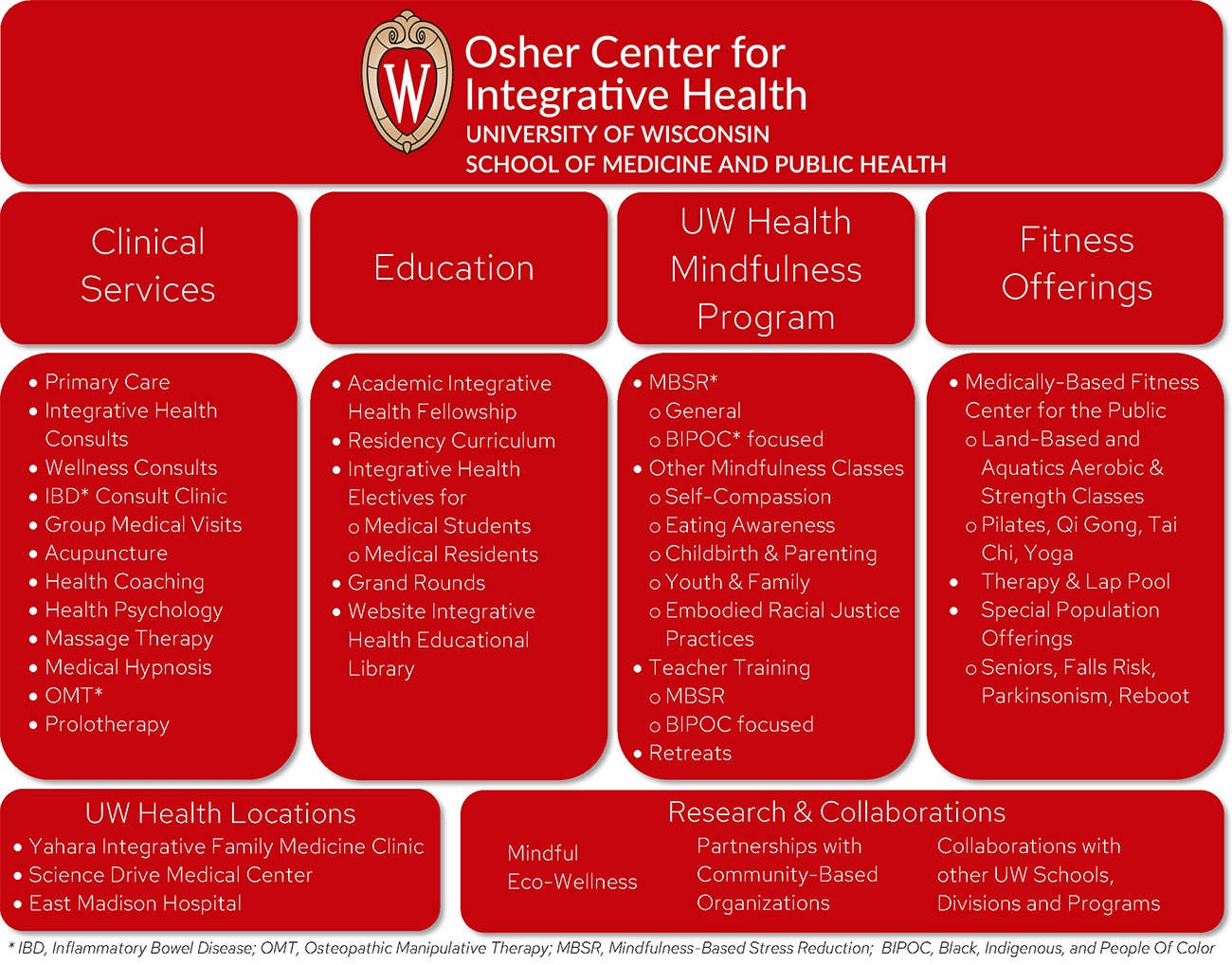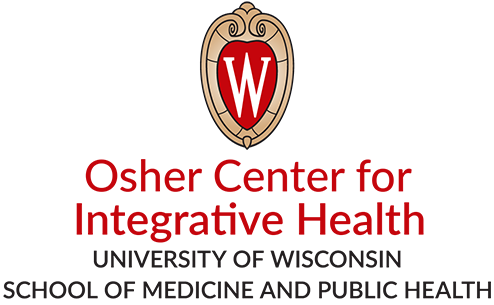The integrative health program at the University of Wisconsin Madison was founded by Dr. David Rakel in 2001. While initially an umbrella that covered only a small consultative practice, minimal massage therapy offerings and the pre-established Mindfulness Based Stress Reduction program, it has grown over the last two decades to become one of the largest and most successful integrative health programs in the country. Current clinical offerings include thriving primary care, consultative, acupuncture, massage therapy and healing touch services; group medical visits addressing a growing number of health and wellness topics; a large menu of movement and fitness classes and an innovative and socially responsive Mindfulness Program.
Clinical education and research are key pieces of our program including opportunities for medical student, resident and fellow education and a large body of online resources and handouts that are used by healthcare providers and patients across the world. Our faculty were also among the leaders who developed the Whole Health program for the United States Department of Veteran Affairs—a program that focuses on delivering patient centered, holistic care to veterans. It is this model that is central to many of our clinical offerings.
As part of a generous gift from the Osher Foundation in 2022, our program became one of 11 academic integrative health institutions that make up the Osher Collaborative for Integrative Health. The combination of this gift, inclusion in the Osher Collaborative and our growing success as a program with strong clinical, educational and research components, led to our designation as an official multidisciplinary center within the University of Wisconsin. Thus, in December of 2022, the Osher Center for Integrative Health at the University of Wisconsin Madison was established.
As the Osher Center, we continue to provide high quality care to the individuals we serve in our health system and to partner with our specialist colleagues across our organization to expand access to integrative health care. We also have an increased capacity to partner with non-healthcare entities within our University and our community to explore innovative ways to not just treat disease, but to truly understand and help nurture the origins of health in all those we serve. We strive to be leaders in this next phase of the field of Integrative Health—Salutogenic Science. To do this well will require a greater recognition of the impacts of social determinants of health and pervasive barriers to healing such as systemic racism and climate change. We will also continue to raise our awareness and reconcile aspects of the Integrative Health field that are guilty of significant cultural appropriation in order to respect and honor healing traditions from which we have much to learn.
While there is much work to do, we move forward using the same principles that integrative health practitioners use to support healing in individuals—listening deeply first, seeking to understand common goals and then reflecting on how we can best be of service to support health and healing. We look for innovative paths to stimulate the inherent healing response within individuals and the incredible healing potential that arises when the best of our academic institution and communities work together for the well-being of all.
Contact Information
For more information or to support our work, please contact: (for clinical services please see below)
Contact Us: Email »
UW Health
For Integrative Health and Wellness Services, please contact:
Phone: (608) 262-9355


